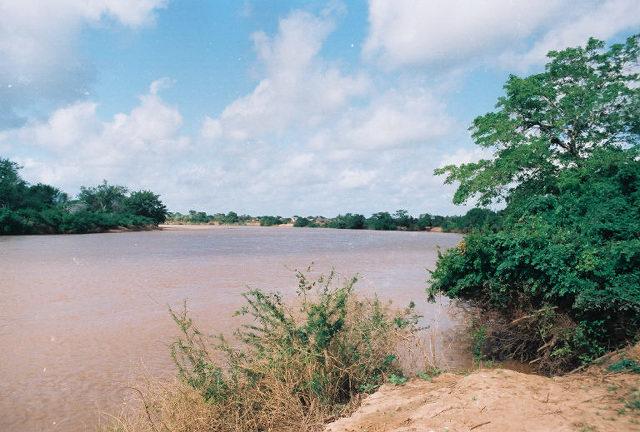Angola economic briefing: high oil prices compensate for tough business environment – By Gaimin Nonyane

 Angola has come a long way since gaining independence from Portugal in 1975. The country has transformed from an agriculture-based economy to one of sub-Saharan Africa’s major oil and mineral producers, thanks to the onset of stability in 2002 after a 27-year civil war. This, along with the commodity boom in recent years (mainly in oil) has attracted significant inward investment despite the country’s huge infrastructure deficit.
Angola has come a long way since gaining independence from Portugal in 1975. The country has transformed from an agriculture-based economy to one of sub-Saharan Africa’s major oil and mineral producers, thanks to the onset of stability in 2002 after a 27-year civil war. This, along with the commodity boom in recent years (mainly in oil) has attracted significant inward investment despite the country’s huge infrastructure deficit.
The stock of inward FDI has risen sharply since the end of the war, reaching $15bn in 2009, up from $10bn in 2001, though 2010–11 saw FDI stock dip amid domestic and external shocks. Moreover, relative political stability alongside strong foreign investment and robust oil-backed government spending has transformed Angola’s market size to one of the largest in sub-Saharan Africa, providing businesses with opportunities for economies of scale. In 2012, the country’s nominal GDP rose to $116bn in 2012 (from $11bn in 2002), which is equivalent to the combined market size of four key countries in the region, Cote d’Ivoire, Ghana, Mozambique and Kenya.
FDI in Angola is predominantly focused on the oil sector, which accounts for around 45% of GDP, 75% of government revenue and over 90% of total exports. Oil investment is largely concentrated offshore in the Cabinda Enclave (accounting for one-third of total production) as FDI onshore has long been constrained by regulatory and infrastructure constraints. However, the government acknowledges the need to improve the country’s infrastructure, which was ravaged by the civil war, diversify the economy away from hydrocarbons and reduce the large income disparity. The latter remains a major problem in Angola, despite the country’s strong recovery from the 2008-09 global crisis.
The 2008-09 global oil price shock saw Angola’s real GDP growth slow to 2.4% in 2009 (Figure 1) from 13.8% in 2008, but real GDP has been on an upward trajectory since 2010, thanks to strong non-oil activity and high oil-backed government spending. These factors have helped to sustain real GDP in the positive territory although technical problems in the oil sector in 2011 constrained growth to only 3.9% as average annual oil production fell below 1.8m b/d for the first time since 2007. However, the economy expanded by 7.4% in 2012 as technical problems were addressed earlier in the year, allowing oil production to recover in the first half of the year. We expect real GDP to remain strong over the short term, boosted by both oil and non-oil activity.
Key sectors will continue to expand
Despite OPEC quota limits, we expect oil output to rise over the short term as new oil fields come on-stream and as new projects gather pace. An emerging source of production is expected to come from the country’s pre-salt blocks, especially those in the prolific Kwanza Basin. In addition, major foreign oil and gas firms such as Chevron, Total and ExxonMobil continue to expand operations, together with national oil companies from emerging markets such as Brazil and China. In view of these factors, we expect Angola’s total oil production capacity to rise above 2.0m b/d by 2015, up from an estimated to 1.888m b/d in 2012, and from 1.785m b/d in 2011. However, the country’s refining capability is limited; it has just one refinery with a capacity of around 40,000 b/d and construction of a new facility has only just begun (it is expected to be completed by 2015). Once finished it is likely to reach 200,000 b/d by 2015, helping to reduce import costs of refined oil.
Production of natural gas is also set to rise. By the end of 2013, Angola’s gas production will far exceed domestic consumption, and the country should have up to 250bcf of spare gas for export. The country’s future gas volumes can serve as a potential base to develop other parts of Angola’s downstream gas industry, if the necessary infrastructure is put in place. This would also create scope for gas production to boost the power sector and fuel further industrialisation, providing a source of feedstock for the fertiliser, petrochemicals and plastics industry.
With prospects for the hydrocarbons sector appearing good (Figure 1) and with oil prices set to remain high in the short term, we expect hydrocarbons tax revenue to rise, injecting liquidity into the economy and creating a multiplier for the non-oil sector. This is particularly the case for the agriculture and services sectors. Already, we have seen a rebound in agriculture which was severely damaged by the civil war but is now recording modest growth, thanks to increased investment, government reforms and removal of landmines.
Sugarcane production, which had fallen two-thirds from its peak, has since strengthened to 510,000 metric tonnes. Palm fruit, oil and kernels production has risen steadily, helping to meet strong domestic demand: this highlights the huge potential for Angola to increase its palm production for food, biofuel and industrial uses. Production of maize has also risen, surpassing that of sugarcane in 2011.
Production in the mining sector has also recovered and is set to expand over the short-to-medium term as new investment projects come on stream, particularly in the diamond and iron-ore mining sectors. The sector currently accounts for around 12% of GDP and is dominated by diamonds (accounting for over 90% of the country’s mineral exports earnings), with an estimated reserve of over 200m carats.
Angola is the eighth largest producer of rough diamonds in the world, and Catoca is one of the world’s largest kimberlite mines. The country also has significant untapped potential in areas such as copper deposits in the Uíge, Namibe and Moxico provinces, iron ore reserves in Cassinga and Cassala-Kitungo, feldspar, gold, natural gas, phosphates and uranium, providing business opportunities for potential investors.
Price pressures are easing but upside inflation risk remains
Meanwhile, inflation has slowed to single digits (the latest being 9.1% year on year, in March 2013, down from 9.7% in September 2012) for the first time since the end of the civil war, marking a significant improvement from the triple-digit inflation rates experienced in 2000-02. The slowdown was owing to the Bank of Angola’s increasing efforts to strengthen its regulatory framework, alongside increased agricultural production and the easing of infrastructure bottlenecks. In response, the BNA cut its policy interest rate by 25bp to 10.0% in January 2013 after keeping interest rates unchanged for 10 consecutive months.
However, despite slowing inflationary pressures, the cost of doing business in Angola is high. Angola’s capital, Luanda, was the world’s second most expensive city for expatriates in 2012, according to Mercer’s 2012 Cost of Living Survey. This is owing to a combination of factors notably, the continued lack of competition in many product markets, a high import dependency (exacerbated by growing middle class demand for foreign luxury goods), poor transport infrastructure, which exerts upward pressure on distribution costs and a high level of oil sector wages, which pushes up the costs of many goods and services. These factors will continue to pose upside risks to inflation. Moreover, the recent implementation of a new foreign exchange law in the oil sector will pose liquidity challenges for monetary authorities.
The new law requires oil companies to make a larger share of their payments to domestic entities in local currency through banks based in Angola. While this will help to de-dollarise the economy and bolster financing opportunities, on the downside, it will increase liquidity in the economy, and therefore the risk of stoking inflation. Amid this, the BNA is likely to shift from its accommodative policy stance and switch to a tight policy stance by end-H2 2013. Meanwhile, the government’s finance position is likely to remain strong, backed by robust oil receipts. However, public financial management will remain a challenge and fiscal overruns are likely to continue. Despite robust demand for imported goods, the current account will remain in surplus, sustaining Angola’s position as a net creditor to the rest of the world.
Significant challenges exist, frustrating businesses
Despite the positive economic outlook, Angola is vulnerable to a number of downside risks. The country remains heavily reliant on a single commodity, oil, which largely supports its budget and current accounts. As such, a repeat of another global oil price shock will have significant adverse effect on the economy.
Rising hydrocarbons production in the US (Angola’s second main export market after China) also poses a threat to the outlook scenario. Already, this has caused the share of Angola’s crude oil exports to the US to drop to 21% of total exports from 31% in 2007. The general state of Angola’s infrastructure is also poor, stifling prospects for long term growth. The lack of adequate port infrastructure and inefficiency partly explains Angola’s relatively long import and export times: it costs on average $1,850 to export one container of goods against $1,380 in Nigeria and $1,620 in South Africa.
Internet penetration, albeit improving, remains below regional peers: only 14.8% of the population have internet access, compared with 28.0% in Kenya, 28.4% in Nigeria and 17.4% in South Africa. Although reforms are underway to address these problems, progress will remain slow. As such, although the government’s current drive to diversify the economy will open up new investment opportunities, doing business in Angola will remain difficult, at least in the short term. This will sustain investor frustration and investors will require patience if they want to tap into Angola’s huge market potential.
Gaimin Nonyane is Senior Macroeconomic Specialist, Ecobank Research, the economic research arm of pan-African banking group Ecobank, www.ecobank.com
Ecobank’s research can be accessed at https://secure.ecobank.com/research_capital.aspx.
She can be contacted on [email protected]







Thank you so much for your meticulous work in producing such informative posts. Those of us in the United States with an entrepreneurial eye for opportunities in Africa are truly in your debt. I wonder whether you might be able to recommend further resources for those of us interested particularly with opportunities in the mining industry and mineral exploration.
Kind regards,
Sean
What an outstanding report!!! And an outstanding smile!! Brilliant work! Do continue to keep us well informed
Hi Sean, you can reach me on [email protected] in relation to your request. Many thanks.
cialis price https://cialiswithdapoxetine.com/
cialis 20mg generic cialis